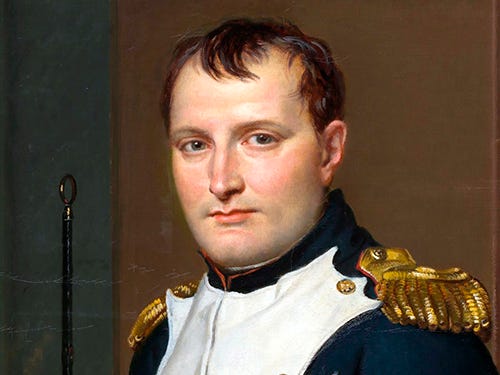Napoleon Bonaparte is a figure who evokes strong opinions; some consider him France's finest leader, while others view him as a bellicose dictator. His historical legacy is deeply divisive. On one side, Napoleon upheld some of the noblest principles of the French Revolution, such as those enshrined in the Napoleonic Code, which remains a foundation for numerous global legal systems today. He represents, especially to critics of class-based systems, a striking example of meritocracy triumphing over traditional aristocracy in the early modern era.
- Blogs
- French-revolution
- Napoleons-rise-and-legacy-in-france-662f5a78bdccdd0001d2d7bb
Napoleon's Rise and Legacy in France
French Revolution • 29 Apr, 2024 • 3,31,960 Views • ⭐ 3.0
Written by Shivani Chourasia

However, Napoleon is also synonymous with severe brutality. The conflicts closely associated with his regime led to the deaths of an estimated 3.25 million to 6.5 million people, both military and civilian. As a military leader, he drew inspiration from historical figures like Alexander the Great and Julius Caesar, earning the admiration of both contemporaries and some controversial figures of the 20th century, including Adolf Hitler, leading to some unfavourable comparisons.
Regarding his personality, the vast array of over 3,000 biographies on him shows little agreement. Yet, there is a consensus among historians that Napoleon’s climb to power was as extraordinary as it was improbable.
Napoleon Bonaparte’s Early Years

Born on August 15, 1769, in Ajaccio, Corsica, Napoleon was ethnically Italian but became a French national—albeit reluctantly—after Corsica was ceded to France shortly before his birth.
Later detractors would deride his humble origins, with the British journalist William Cobbett in 1800 scornfully branding him "a low-bred upstart from the contemptible island of Corsica." This characterization was far from accurate, as Napoleon came from a family of minor nobility. His father, Carlo Bonaparte, served as Corsica’s representative at the court of Louis XVI. Nonetheless, it was his mother, Letizia Ramolino, who he later said had “the head of a man on the body of a woman,” who played a more significant role in shaping the young Napoleon.
In May 1779, Napoleon seized an opportunity to attend the military academy at Brienne-le-Château through a military scholarship. There, his pronounced Corsican accent was the subject of mockery by his predominantly French, aristocratic peers. Rather than withdrawing, Napoleon was motivated to outshine his well-to-do classmates.
He threw himself into his studies, excelling particularly in practical subjects like mathematics, geography, and history. He admired historical figures such as Alexander, Hannibal, and Julius Caesar. At the age of 15, he graduated with honours, becoming the first Corsican to earn a place at Paris’ École Militaire.
During his tenure at the military school, France began its Revolution, a pivotal event in Napoleon's career. The introduction of meritocracy into a system once dominated by privilege opened new avenues in politics and the military for individuals like Napoleon. The chaotic period post-Revolution also significantly altered Napoleon's political views. As a second lieutenant in an artillery regiment, he used a period of garrison duty in 1789 to return to Corsica. There, he became embroiled in the island’s complex political scene, eventually taking command of a battalion of volunteers and clashing with the separatist leader Pasquale Paoli.
Despite his involvement in a riot against French forces in Corsica, he was appointed captain in the French regular army in 1792, a position he assumed upon his forced return to France in June 1793 due to Paoli's influence.
Once back in France, amid the violent upheaval of the Reign of Terror, it quickly became evident that Napoleon had aligned himself with the right faction by supporting the Revolutionary Jacobins over Corsican nationalism. The Jacobins, led by figures such as Maximilien Robespierre, controlled the French National Convention. Napoleon further endeared himself to the Jacobins by authoring the pro-republican pamphlet "Le Souper de Beaucaire," which received approval from Robespierre’s brother, Augustine, who appreciated its revolutionary zeal. His reward was an assignment to Toulon, further advancing his political and military career.